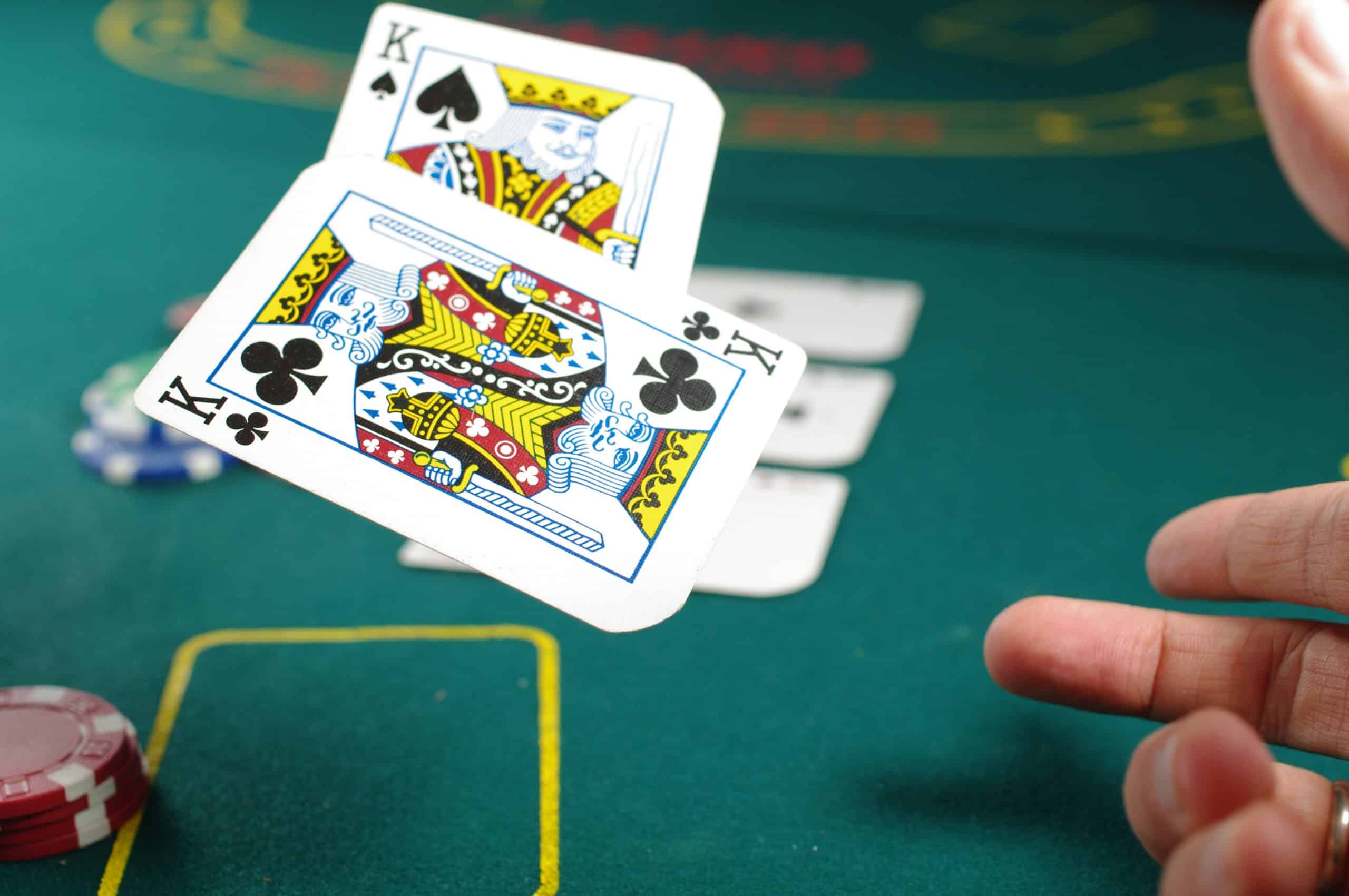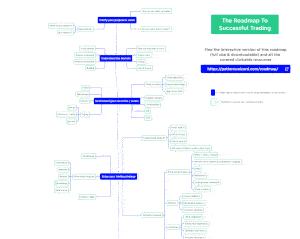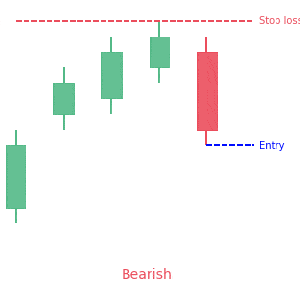Most people all across the globe have a perception that trading is gambling. There are also many others who think the opposite, trading is not gambling. So, what is the reality? Is trading really gambling? Has it some similarities with gambling? Or, it isn’t gambling at all? Let us look into it and find out the truth.
- Trading and gambling both involve an element of risk.
- Both of the activities work on the very basic principle of minimizing risk and maximizing rewards.
- Despite all the similarities, they also have various key differences.
Trading vs gambling
According to one definition, the word “gambling” means chance-taking, risk, or venturing. That means trading and gambling both involve an element of risk. It is the prime similarity between the two. Risk is always there when you trade or invest your capital somewhere. Even if you don’t invest your money and retain it, you still have to face inflation risk. Moreover, both of the activities share the same objective and that is to make money. Both of the activities work on the very basic principle of minimizing risk and maximizing rewards. There are many other similarities between the two as well. However, despite all the similarities, trading and gambling have various key differences.
Trading vs gambling: What are the similarities?
We have learned that trading has various similarities with gambling. If we think a bit more precisely, we come to know that both have the following similarities.
The risk
Risk is the first and foremost similarity between trading and gambling. The strip, the roulette, horse betting, or whatever gambling game you play, the risk is always there. It is an uninvited guest that always knocks at your door. Trading and investing activities also have risks no matter how careful, intuitive, and informed a trader you are. You can manage your risk but cannot eliminate it.
Immediate results
Trading or investing and gambling generate immediate results, good or bad. It is particularly true for day traders who collect their profits or losses at the end of the day. Similarly, gambling is also a game of minutes, even seconds. So, getting instant results is the similarity between the two.
Experience makes you better and better
Experience is a significant factor in life that makes you better and better with every passing day. If you have a goal to earn money, you need to understand what is happening. Whether it is trading or gambling, your learning curve is your biggest ally. With experience, you begin to understand patterns, strategies, and the overall market conditions. Moreover, you also learn how to control your emotions and actions. In the end, your experience becomes the key to reduce risks and increase gains.
Knowing when to quit
Good traders, as well as gamblers, know when to exit the game. They don’t let their greed better of them. Good traders know they have to sell when instrument values are at their peak. Similarly, good gamblers quit when they are on top.
Psychological grit
You need the strength of mind in trading and gambling. Psychological grit heavily gets involved especially when you are on a losing streak. Traders and gamblers must keep themselves prepared for how to deal with losses. They need to know how to keep emotions under control, how not to overreact, and over-trade/over-gamble to cover losses.
No guaranteed outcome
Traders and gamblers both need to know that losing is also part of the game. Neither traders nor gamblers have the certainty of the outcome. Therefore, they need to understand that there is no guaranteed outcome in trading as well as gambling.
Trading vs gambling: What are the differences?
There is a fine line that separates trading and investing from gambling. Sometimes, it gets very complicated to differentiate between the two. Both of the activities are money-oriented and differences among them are so subtle that they go unnoticed. So, when it will be trading, and when it’ll be gambling? What is the difference?
The odds
The key difference between trading and investing is the odds of minimizing risks while maximizing gains. The odds are mostly in the favour of the intelligent, prudent, and informed trader. The favorable odds continue to increase over the long run as the stock markets always tend to appreciate over the long run. That isn’t the case with gambling. The house always enjoys an advantage over the player and it continues to get better over the long term. It doesn’t mean that gamblers will always fail and traders will always win. It means the favorable odds are always on the trader’s side over the long-term but not on the gambler’s side.
Traders have numerous ways to limit losses
A trader has multiple techniques to mitigate losses but a gambler doesn’t have such a luxury. You cannot limit your losses as a gambler once you start the game. If you have bet $20, your whole amount is at risk. You cannot decrease your losses to $15 or $10. On the other hand, a trader can mitigate losses through various techniques. For example, a trader can limit losses through stop-losses. If you have set a stop-loss at 95%, you can sell your stock once the stock falls below 5% of its purchase price. This isn’t possible in gambling.
The time
Trading and investment can last for decades while gambling is an activity that generates instantaneous results. Although day trading or any other short-term trading is also time-bound activity, short-term trading may last for several years. Moreover, companies also pay dividends to shareholders and that means long-term investments are also rewarding. Conversely, gambling produces instantaneous results, your either win or lose.
Informed decisions
Both traders and gamblers seem to capitalize on the historical data, past performance, and current behavior. Information is extremely valuable in both activities as it leads to informed decision-making. However, traders and investors have access to more readily available information such as income statements, cash flow reports, financial ratios, etc. On the other hand, gamblers don’t have access to such readily available and quantifiable information.
Final thoughts
There are two perceptions around, “trading is gambling” and “trading is not gambling.” Believes of “trading is gambling” argue that trading also involves risks of losing money and uncertain outcomes. You will also find those phrases in various dictionaries defining trading. Trading will definitely be gambling when someone begins trading without proper knowledge and information. Trading will also be gambling if someone enters trades without a proper tried and tested trading strategy and risk management. He/she will definitely lose money because of taking chances. However, trading isn’t gambling when someone is professional. Serious traders always try to meet all the prerequisites of being successful traders. They remain informed, consistent, persistent, open-minded, and dedicated to their profession. On the other hand, gamblers cannot make money consistently. They heavily rely on chances. Fate decides their play. In the end, we can say that there are various similarities between trading and gambling. But, despite all those similarities, trading is totally a different proposition. Trading cannot be gambling if you are meeting all the requirements of trading and investing.

 Good Trading requires the Best Charting Tool!
Good Trading requires the Best Charting Tool!

 We loved Marwood Research’s course “Candlestick Analysis For Professional Traders“. Do you want to follow a great video course and deep dive into 26 candlestick patterns (and compare their success rates)? Then make sure to check this course!
We loved Marwood Research’s course “Candlestick Analysis For Professional Traders“. Do you want to follow a great video course and deep dive into 26 candlestick patterns (and compare their success rates)? Then make sure to check this course!